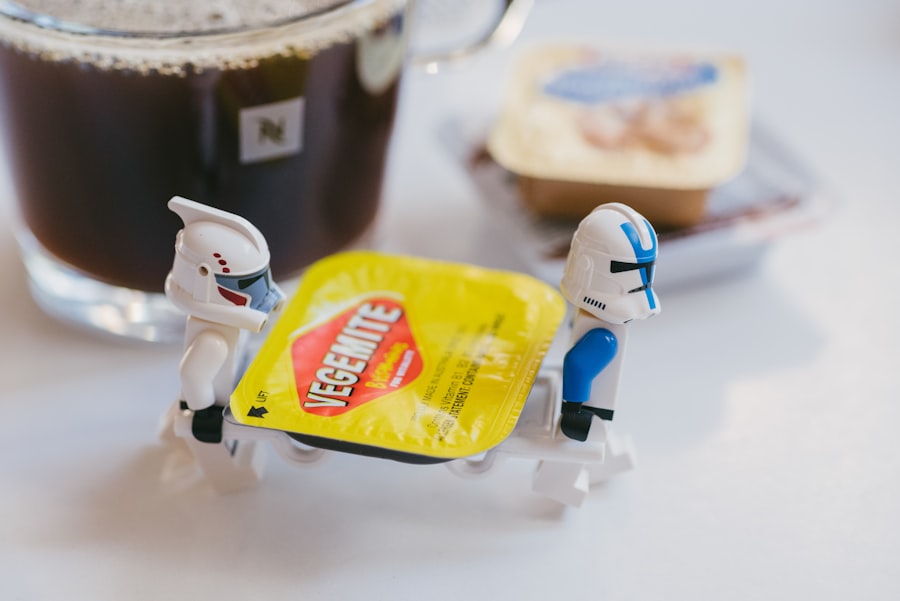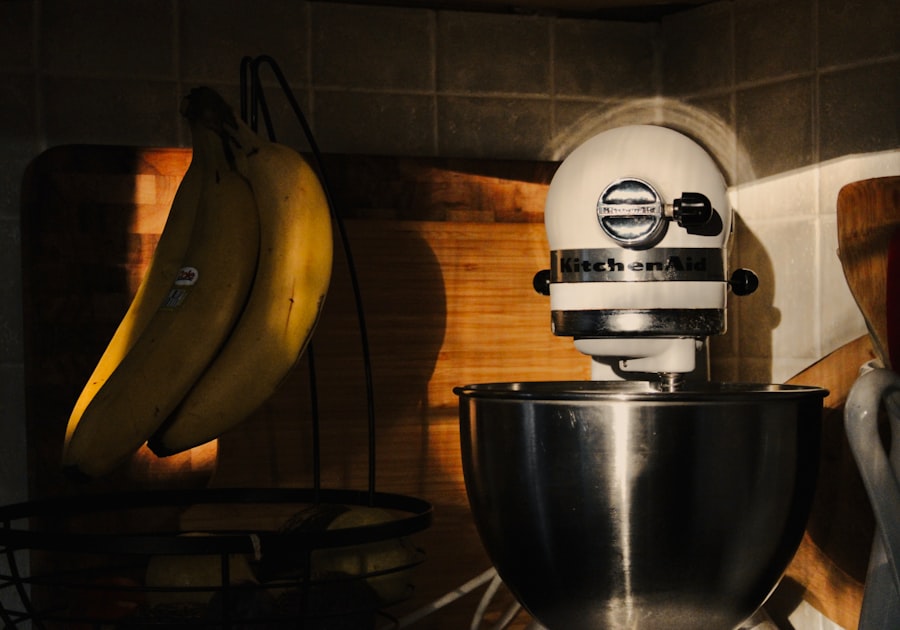As you step into the kitchen, the aroma of spices and the sizzle of ingredients create a symphony of culinary delight. However, the landscape of cooking is evolving, and artificial intelligence (AI) is at the forefront of this transformation. AI in cooking is not merely a futuristic concept; it is a reality that is reshaping how you approach meal preparation, recipe creation, and even dining experiences.
From smart kitchen appliances that assist you in cooking to apps that suggest recipes based on your pantry inventory, AI is becoming an integral part of your culinary journey. The integration of AI into cooking is driven by the desire for efficiency, creativity, and personalization. Imagine having a virtual sous-chef that can analyze your preferences, dietary restrictions, and available ingredients to suggest the perfect meal.
This technology not only saves you time but also enhances your cooking skills by providing real-time feedback and guidance. As you explore the world of AI in cooking, you will discover how it is revolutionizing culinary techniques, impacting the restaurant industry, and paving the way for innovative food solutions.
Key Takeaways
- AI in cooking is revolutionizing culinary techniques by providing innovative solutions for recipe development and food innovation.
- The impact of AI on the restaurant industry is significant, with the technology being used to enhance customer experience, optimize operations, and improve food quality.
- AI is playing a crucial role in food innovation and recipe development by analyzing consumer preferences, creating new flavor combinations, and optimizing ingredient proportions.
- The future of AI-powered kitchen appliances looks promising, with the potential to automate cooking processes, personalize recipes, and improve overall kitchen efficiency.
- Challenges and ethical considerations in AI-driven cooking include concerns about data privacy, job displacement, and the potential for bias in recipe recommendations.
How AI is Revolutionizing Culinary Techniques
AI is transforming culinary techniques in ways that were once unimaginable. With machine learning algorithms and data analysis, AI can identify patterns in cooking methods and ingredient combinations that yield the best results. For instance, when you experiment with a new recipe, AI can analyze the cooking times, temperatures, and ingredient interactions to suggest adjustments that enhance flavor and texture.
This level of precision allows you to elevate your cooking game, making it easier to achieve restaurant-quality dishes at home. Moreover, AI-powered tools are making it possible for you to explore new cuisines and techniques without the fear of failure. Virtual cooking assistants can guide you step-by-step through complex recipes, offering tips and tricks along the way.
Whether you’re trying your hand at sous-vide cooking or mastering the art of fermentation, AI can provide insights that help you understand the science behind each technique. This not only boosts your confidence in the kitchen but also encourages you to experiment and innovate with your culinary creations.
The Impact of AI on Restaurant Industry

The restaurant industry is experiencing a seismic shift due to the integration of AI technologies. As a diner, you may have noticed changes in how restaurants operate, from automated ordering systems to personalized dining experiences. AI is streamlining operations by optimizing inventory management, predicting customer preferences, and enhancing food safety protocols.
For instance, AI can analyze historical sales data to forecast demand for specific dishes, allowing restaurants to minimize waste and ensure that fresh ingredients are always available. Additionally, AI is enhancing customer engagement by personalizing dining experiences. When you visit a restaurant that utilizes AI-driven systems, you may receive tailored recommendations based on your previous orders or dietary preferences.
This level of personalization not only improves your dining experience but also fosters customer loyalty. As restaurants continue to adopt AI technologies, you can expect to see more innovative approaches to menu design and customer service that cater specifically to your tastes and preferences.
The Role of AI in Food Innovation and Recipe Development
AI is playing a pivotal role in food innovation and recipe development, pushing the boundaries of what is possible in the culinary world. With access to vast databases of recipes and ingredient combinations, AI can generate new recipes that you may never have considered. By analyzing flavor profiles and nutritional content, AI can create dishes that are not only delicious but also healthy and balanced.
This opens up a world of possibilities for home cooks and professional chefs alike. Furthermore, AI is enabling food scientists to develop new ingredients and products that cater to evolving consumer demands. For example, if you’re interested in plant-based diets or gluten-free options, AI can assist in formulating new alternatives that mimic traditional flavors and textures.
This innovation is crucial as more people seek healthier and sustainable food choices. As you explore these advancements in food innovation, you’ll find that AI is not just a tool; it is a catalyst for creativity and exploration in the kitchen.
The Future of AI-Powered Kitchen Appliances
As technology continues to advance, the future of AI-powered kitchen appliances looks promising. Imagine a kitchen where your appliances communicate with each other to create a seamless cooking experience. Smart ovens that adjust cooking times based on the dish being prepared or refrigerators that track inventory and suggest recipes based on what you have on hand are just a glimpse of what lies ahead.
These innovations will not only make cooking more convenient but also empower you to make healthier choices. In addition to convenience, AI-powered kitchen appliances are designed to enhance your culinary skills. For instance, smart cooktops can provide real-time feedback on temperature control and cooking techniques, helping you refine your skills over time.
As these appliances become more sophisticated, they will likely incorporate features such as voice recognition and machine learning capabilities that adapt to your cooking style. The future of cooking will be characterized by collaboration between humans and machines, resulting in a more enjoyable and efficient culinary experience.
Challenges and Ethical Considerations in AI-Driven Cooking

While the benefits of AI in cooking are numerous, there are also challenges and ethical considerations that must be addressed. One significant concern is data privacy. As you use AI-driven applications and devices, they collect data about your eating habits and preferences.
It’s essential to ensure that this data is handled responsibly and securely to protect your privacy. Transparency from companies regarding how they use your data will be crucial in building trust as these technologies become more prevalent. Another challenge lies in the potential for over-reliance on technology.
While AI can enhance your cooking experience, it’s important not to lose sight of traditional culinary skills and knowledge. Cooking is an art form that involves intuition, creativity, and personal touch—elements that may be diminished if you rely solely on algorithms for guidance. Striking a balance between leveraging AI for efficiency while maintaining your unique culinary identity will be key as you navigate this evolving landscape.
Training and Education in AI Culinary Arts
As AI continues to shape the culinary world, training and education in AI culinary arts are becoming increasingly important. Culinary schools are beginning to incorporate technology into their curricula, teaching aspiring chefs how to use AI tools effectively in their kitchens. This education not only prepares students for careers in modern kitchens but also equips them with the skills needed to innovate within the industry.
For home cooks like yourself, there are also numerous online resources available that focus on integrating AI into cooking practices. From virtual cooking classes that utilize AI-driven platforms to online communities where you can share experiences and learn from others, the opportunities for education are vast. Embracing these resources will empower you to harness the full potential of AI in your culinary endeavors while staying informed about emerging trends in the field.
The Potential of AI in Personalized Nutrition and Dietary Planning
One of the most exciting applications of AI in cooking is its potential for personalized nutrition and dietary planning. As you become more health-conscious or seek specific dietary goals—whether it’s weight loss, muscle gain, or managing health conditions—AI can provide tailored meal plans that align with your needs. By analyzing your dietary preferences, nutritional requirements, and even genetic factors, AI can create customized meal suggestions that promote optimal health.
Moreover, AI can help you track your nutritional intake more effectively than ever before. With apps that analyze your meals based on photos or ingredient lists, you can gain insights into your eating habits and make informed decisions about your diet. This level of personalization not only enhances your overall well-being but also empowers you to take control of your health journey in a way that feels manageable and sustainable.
In conclusion, as you explore the intersection of artificial intelligence and cooking, you’ll find a world rich with possibilities for innovation, efficiency, and personalization. From revolutionizing culinary techniques to transforming the restaurant industry and enhancing personalized nutrition, AI is reshaping how we approach food and cooking. Embracing these advancements will not only elevate your culinary skills but also enrich your overall dining experience as we move toward a future where technology and creativity coexist harmoniously in the kitchen.
In a recent article on AI Lab 360, the discussion of AI in cooking is expanded upon in relation to AI for environmental good. The article AI for Environmental Good: Predicting Climate Changes and Conserving Nature explores how artificial intelligence can be utilized to predict climate changes and help in the conservation of nature. This connection between AI in cooking and environmental sustainability highlights the potential for technology to revolutionize the culinary arts industry in a way that benefits both people and the planet.
FAQs
What is AI in cooking?
AI in cooking refers to the use of artificial intelligence technology in the culinary arts, including the development of smart kitchen appliances, recipe generation, flavor profiling, and personalized meal recommendations.
How is AI being used in cooking?
AI is being used in cooking in various ways, such as recipe generation and optimization, flavor analysis and profiling, kitchen automation, personalized meal recommendations, and smart kitchen appliances that can assist with cooking tasks.
What are the benefits of AI in cooking?
The benefits of AI in cooking include improved recipe development, personalized meal planning, enhanced flavor profiling, kitchen automation, and the potential for reducing food waste through optimized cooking processes.
What are some examples of AI in cooking?
Examples of AI in cooking include smart kitchen appliances like intelligent ovens and cooking robots, recipe generation and optimization software, flavor analysis and profiling tools, and personalized meal recommendation systems.
What are the potential challenges of AI in cooking?
Challenges of AI in cooking may include the need for data privacy and security, potential job displacement in the culinary industry, the need for user acceptance and trust in AI technology, and the ethical considerations of AI-generated recipes and flavor profiles.






